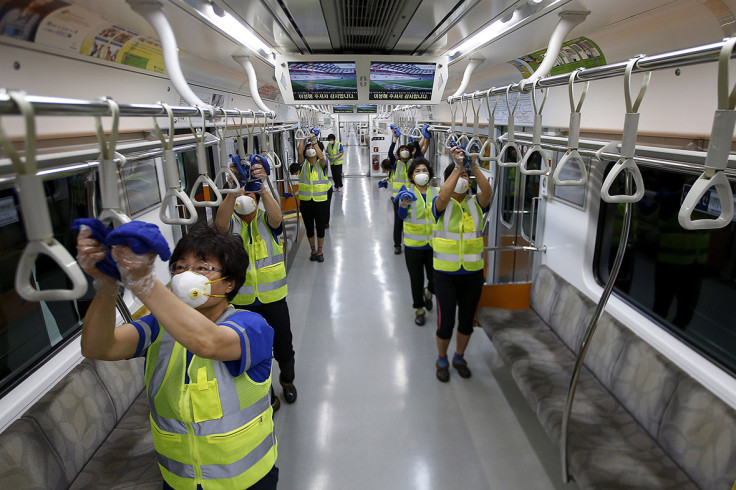Mers outbreak: South Korea to inject $20bn into economy to sustain growth

The South Korean government is injecting billions of dollars into the economy, which is suffering from falling exports and the outbreak of the Middle East Respiratory Syndrome (Mers).
On 3 July, the government proposed a fresh stimulus of 12tn won (£6.8bn, €9.6bn, $10.7bn), part of a larger package amounting to 22tn won.
The country earlier cut its economic growth forecast for 2015 to 3.1%, primarily due to the Mers outbreak, which is expected to severely affect the key tourism sector and consumer spending. It also expects lower consumer price inflation of 0.7%, compared to the earlier forecast of 2%.
The stimulus was announced to ensure that the growth rate stays above 3%, as exports are forecast to decline by 1.5% in 2015 and imports are projected to contract by 7%.
"The government proposed a supplementary budget of around 12 trillion won, 5.6 trillion won to deal with revenue shortages and 5.6 trillion won to help overcome the Mers outbreak, improve water resources management, support the working class and stimulate local economies," reads a statement on the official website of the Ministry of Strategy and Finance.
"The amount will reach around 22 trillion won when other public sector expenditures are taken into account including 3.1 trillion won from the government funds."
Meanwhile, vice finance minister Bang Moon-Kyu was quoted by Yonhap news agency as saying, "The extra budget will help revitalise the economy and stabilise the livelihoods of ordinary people who have been affected the most by the fallout from Mers."
The South Korean central bank earlier cut its benchmark interest rate to combat the negative impact of Mers on its economy.
The outbreak could limit inbound and outbound trips, as citizens are advised against travelling. Neighbouring travel destinations such as Hong Kong, Macau and Taiwan have already issued alerts.
Consumption of goods and services is likely to decline as locals stay home and visitors delay travel plans to the country, dampening hopes of an economic recovery.
As of date, the death toll from the virus climbed to 33, while a total of 184 cases have been confirmed, according to the health ministry.
© Copyright IBTimes 2024. All rights reserved.






